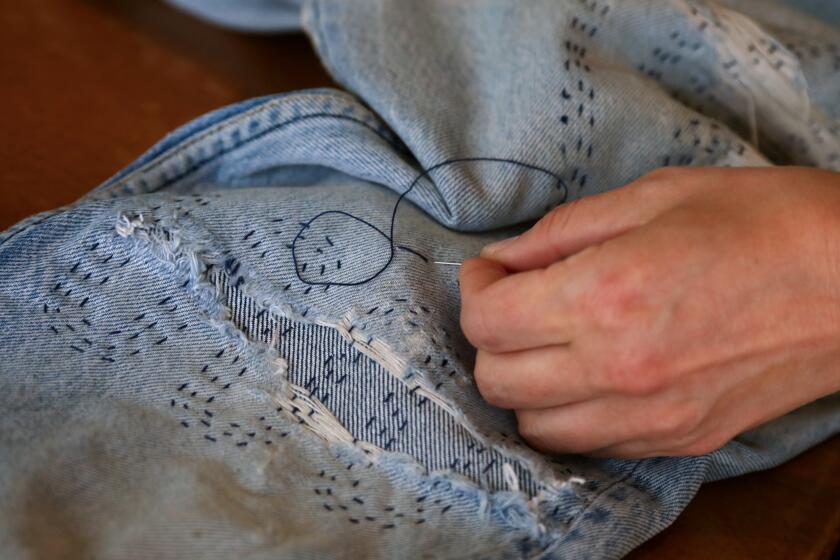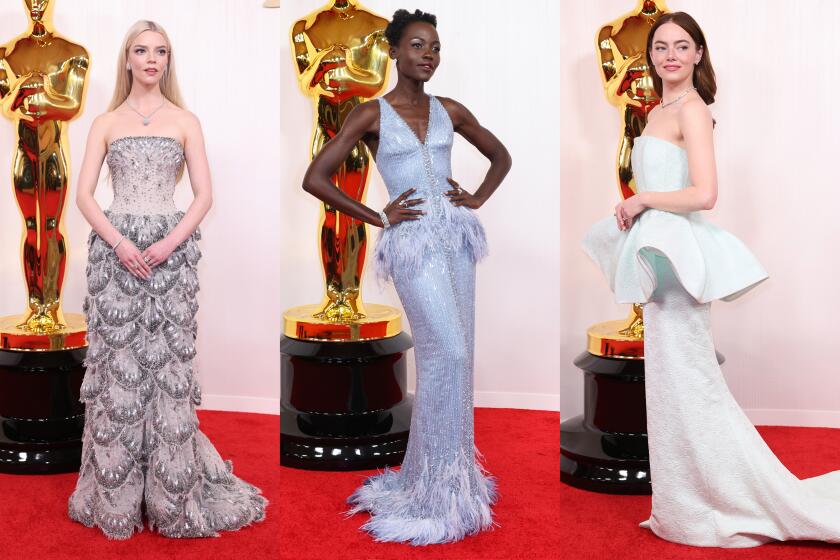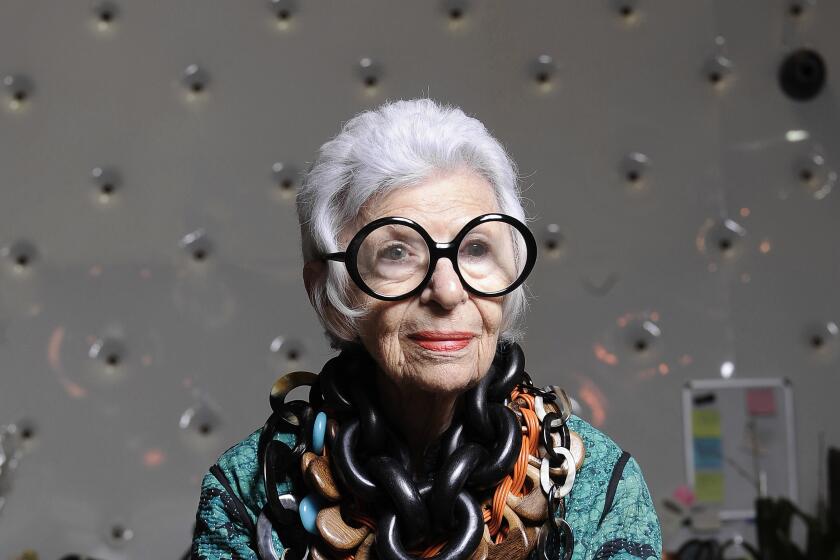Obama’s the model for black college dress guidelines
When candidate Barack Obama told MTV viewers in November that “brothers should pull up their pants,” Kent Williams Jr. was thinking the same thing.
Williams, the student body president at North Carolina Central University, was weary of seeing young men show up in class wearing do-rags, pajama bottoms or pants drooping over their rear ends.
So the historically black college will soon distribute information cards that he proposed, using students as models, to illustrate the right -- and wrong -- ways to dress on campus and professionally. “Don’ts” include droopy pants, do-rags, gold chains and other totems of hip-hop culture.
Students at some historically black colleges say they began rebelling against such crimes of fashion long before Obama spoke up. But they also say Obama’s fashion sense on the campaign trail -- and now as President Obama -- has made it easier to persuade other young African Americans to trade street sloppy for business cool.
Referring to sagging pants, Obama told the MTV audience on Nov. 2: “You are walking by your mother, your grandmother -- your underwear is showing. Come on. . . . Some people might not want to see your underwear. I’m one of them.”
Williams said he was heartened by Obama’s comments. “We’re all looking to him for guidance,” the senior said this month.
Williams wore slim black slacks, a gray sport shirt and a trim black jacket. He sat across from a sign at the student government office that read: “This is a place of business. Please treat it as such.”
Williams got the idea for the cards from another historically black college, Winston-Salem State University. After that school issued fashion cards last year, campus attire improved markedly, said LaMonica Singleton of the school’s career services office.
“Rather than beat them over the heads, we let the cards emphasize professional attire -- and students have responded,” Singleton said.
The cards also advise: “Please use appropriate language when in public -- offensive language can be as detrimental as inappropriate dress.”
Mark Anthony Neal, a professor of black popular culture at Duke University and the author of “New Black Man: Rethinking Black Masculinity,” calls do-rags and sagging pants “a residue of something that doesn’t really exist anymore.” That street style peaked a few years ago, he said.
Such hip-hop icons as Jay-Z and Sean “Diddy” Combs are now more likely to sport formal evening wear or designer business suits.
But because Obama has provided “the visibility of an alternative image of black masculinity,” Neal said, the trend toward sharp dressing has accelerated.
“It makes perfect sense that you would have young African American strivers wanting to model and emulate President Obama,” a paramount symbol of black achievement, said Neal.
Years before Obama appeared on the national stage, Neal said, student leaders at prominent historically black schools such as Howard University and Morehouse College viewed themselves as “trendsetters for a more respectable image of African American culture,” wearing business suits or dresses.
At North Carolina Central, Williams said, a few students have complained that the dress cards undermine individuality and self-expression.
But others said sloppy attire on campus offended them.
“When guys wear their pants below their behinds, that irritates me,” said Jahara Davis, 20, a junior. “I do not want to see the color of your drawers. That’s disrespectful.”
Nor, Davis said, does she care to see “some of these young ladies with all of their chest area exposed, or the bottoms of their behinds.”
As Obama came to national attention, Davis said, she noticed young men dressing better. “They’re thinking, ‘Maybe we don’t have to look like we’re a product of where we come from. We can look better,’ ” she said.
Jasmine Bell, 20, a junior, cited Obama’s wife, Michelle, as a role model for young black women.
“I look up to her -- she’s awesome,” Bell said. “Barack and Michelle Obama give us all the inspiration to go out and carry ourselves with respect.”
Constance B. Roberson, the university’s student activities director, said she doesn’t expect a return to the early 1960s, when students wore suits or dresses and women could wear pants only on Saturdays. But she does hope the cards promote “neatness and respect,” she said.
Marcus Donovan Waters, a North Carolina Central senior dressed in a bulky coat and baggy pants (worn well above his hips), said the dress cards would not impinge on students’ freedom of expression. He said he is preparing a campus fashion show of styles that can be adapted to individual tastes but are still respectful.
“When you wear your pants hanging off your tail, you’re portraying a stereotype of African Americans,” Waters said. “It’s disgraceful to your race.”
Senior Arthur Jennings suggested a more practical reason to dress neatly.
“There are [job] recruiters on campus all the time, so you’d better look your best,” Jennings said. “You never know who you’ll meet. You might even meet Barack Obama.”
--
More to Read
Start your day right
Sign up for Essential California for news, features and recommendations from the L.A. Times and beyond in your inbox six days a week.
You may occasionally receive promotional content from the Los Angeles Times.







